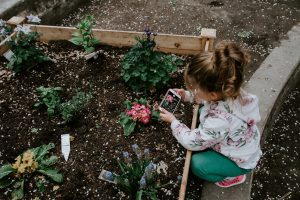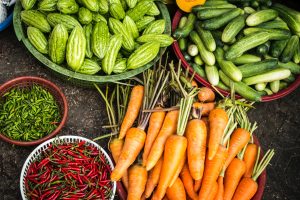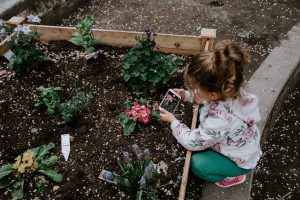Going Organic

Photo by Kelly Sikkema on Unsplash

Photo by Megan Thomas on Unsplash
loading...

1 March
View All Mar 01 | 12:00PM - 1:30PM
Computer and Gadget Help
Drop in for help with basic technology tasks like downloading documents, setting up apps, filling out online forms, online job searching, or setting up your new smart phone or eReader.
Topeka and Shawnee County Public Library, Digital Arts Studio (2nd Floor)
Mar 01 | 12:00PM - 1:30PM
Computer and Gadget Help
Drop in for help with basic technology tasks like downloading documents, setting up apps, filling out online forms, online job searching, or setting up your new smart phone or eReader.
Topeka and Shawnee County Public Library, Digital Arts Studio (2nd Floor)
 Mar 01 | 12:00PM - 9:00PM
Runway Remix
In this fashion display, textile artists created new works inspired by the library's permanent art collections as inspiration. Come see their creations in this fun exhibit!
Topeka and Shawnee County Public Library, Alice C. Sabatini Gallery
Mar 01 | 12:00PM - 9:00PM
Runway Remix
In this fashion display, textile artists created new works inspired by the library's permanent art collections as inspiration. Come see their creations in this fun exhibit!
Topeka and Shawnee County Public Library, Alice C. Sabatini Gallery
 Mar 01 | 2:00PM - 3:00PM
Reading with Prairieland Dogs
Dogs are a kid's best listener. Grab your favorite book and read to these special dogs. This opportunity allows kids to practice their reading with a positive and nonjudgmental listener.
Topeka and Shawnee County Public Library, Story Zone 121C west
Mar 01 | 2:00PM - 3:00PM
Reading with Prairieland Dogs
Dogs are a kid's best listener. Grab your favorite book and read to these special dogs. This opportunity allows kids to practice their reading with a positive and nonjudgmental listener.
Topeka and Shawnee County Public Library, Story Zone 121C west
2 March
View All Mar 02 | 9:00AM - 9:00PM
Runway Remix
In this fashion display, textile artists created new works inspired by the library's permanent art collections as inspiration. Come see their creations in this fun exhibit!
Topeka and Shawnee County Public Library, Alice C. Sabatini Gallery
Mar 02 | 9:00AM - 9:00PM
Runway Remix
In this fashion display, textile artists created new works inspired by the library's permanent art collections as inspiration. Come see their creations in this fun exhibit!
Topeka and Shawnee County Public Library, Alice C. Sabatini Gallery
 Mar 02 | 9:00AM - 11:00AM
Computer and Gadget Help
Drop in for help with basic technology tasks like downloading documents, setting up apps, filling out online forms, online job searching, or setting up your new smart phone or eReader.
Topeka and Shawnee County Public Library, Digital Arts Studio (2nd Floor)
Mar 02 | 9:00AM - 11:00AM
Computer and Gadget Help
Drop in for help with basic technology tasks like downloading documents, setting up apps, filling out online forms, online job searching, or setting up your new smart phone or eReader.
Topeka and Shawnee County Public Library, Digital Arts Studio (2nd Floor)
 Mar 02 | 9:30AM - 10:00AM
Building Readers: Baby Bookworms
Introduce your baby to the wonderful world of books through songs, stories and bounces. This is a special time for infants 0-12 months and their caregivers to gather for learning and fun.
Topeka and Shawnee County Public Library, Story Zone 121C west
Mar 02 | 9:30AM - 10:00AM
Building Readers: Baby Bookworms
Introduce your baby to the wonderful world of books through songs, stories and bounces. This is a special time for infants 0-12 months and their caregivers to gather for learning and fun.
Topeka and Shawnee County Public Library, Story Zone 121C west
1 March
View All Mar 01 | 12:00PM - 1:30PM
Computer and Gadget Help
Drop in for help with basic technology tasks like downloading documents, setting up apps, filling out online forms, online job searching, or setting up your new smart phone or eReader.
Topeka and Shawnee County Public Library, Digital Arts Studio (2nd Floor)
Mar 01 | 12:00PM - 1:30PM
Computer and Gadget Help
Drop in for help with basic technology tasks like downloading documents, setting up apps, filling out online forms, online job searching, or setting up your new smart phone or eReader.
Topeka and Shawnee County Public Library, Digital Arts Studio (2nd Floor)
 Mar 01 | 12:00PM - 9:00PM
Runway Remix
In this fashion display, textile artists created new works inspired by the library's permanent art collections as inspiration. Come see their creations in this fun exhibit!
Topeka and Shawnee County Public Library, Alice C. Sabatini Gallery
Mar 01 | 12:00PM - 9:00PM
Runway Remix
In this fashion display, textile artists created new works inspired by the library's permanent art collections as inspiration. Come see their creations in this fun exhibit!
Topeka and Shawnee County Public Library, Alice C. Sabatini Gallery
 Mar 01 | 2:00PM - 3:00PM
Reading with Prairieland Dogs
Dogs are a kid's best listener. Grab your favorite book and read to these special dogs. This opportunity allows kids to practice their reading with a positive and nonjudgmental listener.
Topeka and Shawnee County Public Library, Story Zone 121C west
Mar 01 | 2:00PM - 3:00PM
Reading with Prairieland Dogs
Dogs are a kid's best listener. Grab your favorite book and read to these special dogs. This opportunity allows kids to practice their reading with a positive and nonjudgmental listener.
Topeka and Shawnee County Public Library, Story Zone 121C west
2 March
View All Mar 02 | 9:00AM - 9:00PM
Runway Remix
In this fashion display, textile artists created new works inspired by the library's permanent art collections as inspiration. Come see their creations in this fun exhibit!
Topeka and Shawnee County Public Library, Alice C. Sabatini Gallery
Mar 02 | 9:00AM - 9:00PM
Runway Remix
In this fashion display, textile artists created new works inspired by the library's permanent art collections as inspiration. Come see their creations in this fun exhibit!
Topeka and Shawnee County Public Library, Alice C. Sabatini Gallery
 Mar 02 | 9:00AM - 11:00AM
Computer and Gadget Help
Drop in for help with basic technology tasks like downloading documents, setting up apps, filling out online forms, online job searching, or setting up your new smart phone or eReader.
Topeka and Shawnee County Public Library, Digital Arts Studio (2nd Floor)
Mar 02 | 9:00AM - 11:00AM
Computer and Gadget Help
Drop in for help with basic technology tasks like downloading documents, setting up apps, filling out online forms, online job searching, or setting up your new smart phone or eReader.
Topeka and Shawnee County Public Library, Digital Arts Studio (2nd Floor)
 Mar 02 | 9:30AM - 10:00AM
Building Readers: Baby Bookworms
Introduce your baby to the wonderful world of books through songs, stories and bounces. This is a special time for infants 0-12 months and their caregivers to gather for learning and fun.
Topeka and Shawnee County Public Library, Story Zone 121C west
Mar 02 | 9:30AM - 10:00AM
Building Readers: Baby Bookworms
Introduce your baby to the wonderful world of books through songs, stories and bounces. This is a special time for infants 0-12 months and their caregivers to gather for learning and fun.
Topeka and Shawnee County Public Library, Story Zone 121C west



Photo by Kelly Sikkema on Unsplash

Photo by Megan Thomas on Unsplash
Share this Article
Share this Article on Facebook Share this Article on Twitter Share this Article on LinkedIn Share this Article via Email
Donna Casey
